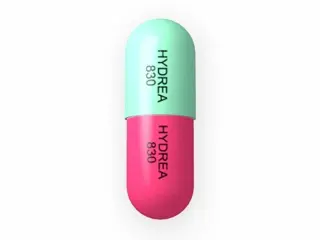Cancer

Explore a wide range of cancer medications and supportive care products designed to help manage symptoms and improve quality of life. Find trusted treatments from leading brands, available for purchase with expert guidance and secure service.
Cancer is a complex group of diseases that require diverse treatment approaches. Medications listed here target different types of cancer and symptoms associated with the disease. Each medicine has specific uses, benefits, and precautions.
Aldara is an immune response modifier. It helps treat skin cancers like superficial basal cell carcinoma and actinic keratosis. Aldara stimulates the body's immune system to attack cancer cells. It is applied topically and works by activating immune cells in the skin.
Alkacel is a brand name for cyclophosphamide. It is a chemotherapy drug used to treat cancers such as lymphoma and breast cancer. Cyclophosphamide works by interfering with DNA replication in cancer cells, preventing their growth. It can cause side effects like nausea and low blood counts.
Armotraz contains anastrozole. It is used in hormone receptor-positive breast cancer in postmenopausal women. This drug blocks estrogen production, slowing cancer growth. Armotraz is taken orally, usually once a day. It may cause joint pain and hot flashes.
Capnat is a capecitabine-based medication. Capecitabine is an oral chemotherapy that converts to 5-fluorouracil in the body. It is used for colorectal and breast cancer treatments. Capnat kills cancer cells by disrupting their DNA synthesis. Side effects include diarrhea and hand-foot syndrome.
Casodex contains bicalutamide, a drug used in prostate cancer. It blocks the action of male hormones like testosterone which promote prostate cancer growth. Casodex is commonly used alongside other hormone therapies. It is taken orally, and side effects include hot flashes and fatigue.
Hydrea contains hydroxyurea, a chemotherapy drug. It is used for various blood cancers, including chronic myeloid leukemia and some solid tumors. Hydrea slows the growth of cancer cells by inhibiting DNA synthesis. Common side effects include low blood cell counts and mouth ulcers.
Leukeran contains chlorambucil. This alkylating agent targets cancers such as chronic lymphocytic leukemia and lymphomas. Leukeran damages the DNA of cancer cells, preventing replication. It is taken orally and may cause infections due to lowered immunity.
Methotrexate is a well-known chemotherapy and immunosuppressant drug. It is used in many cancers, including leukemia, breast cancer, and lung cancer. Methotrexate inhibits an enzyme needed for DNA synthesis, which kills rapidly dividing cells. It can cause liver toxicity and bone marrow suppression.
Nolvadex contains tamoxifen, a selective estrogen receptor modulator. It is widely used in estrogen receptor-positive breast cancer. Nolvadex blocks estrogen effects on cancer cells, slowing their growth. Long-term use may increase the risk of blood clots and uterine cancer.
Xeloda is another brand of capecitabine. It is used for metastatic breast and colorectal cancer. Xeloda offers the convenience of oral chemotherapy. Like Capnat, it targets cancer cells during DNA synthesis. Side effects may include nausea, diarrhea, and hand-foot syndrome.
Zofran contains ondansetron, a medication used to prevent nausea and vomiting caused by chemotherapy. It works by blocking serotonin receptors in the brain. Zofran improves patient comfort and treatment adherence by reducing these side effects.
Overall, the listed medications cover a range of functions in cancer treatment. Some are chemotherapy agents directly attacking cancer cells. Others modify hormone activity or enhance immune response. Supportive drugs like Zofran help manage treatment side effects. Each drug requires careful use under medical supervision. Side effects should be monitored closely. The effectiveness depends on cancer type, stage, and patient condition.
Before using any cancer medication, patients should consult healthcare providers. Dosing and schedules vary based on diagnosis. Proper management improves outcomes and quality of life. Awareness of common side effects and drug interactions is also vital. These medications represent tools in the ongoing fight against cancer.









